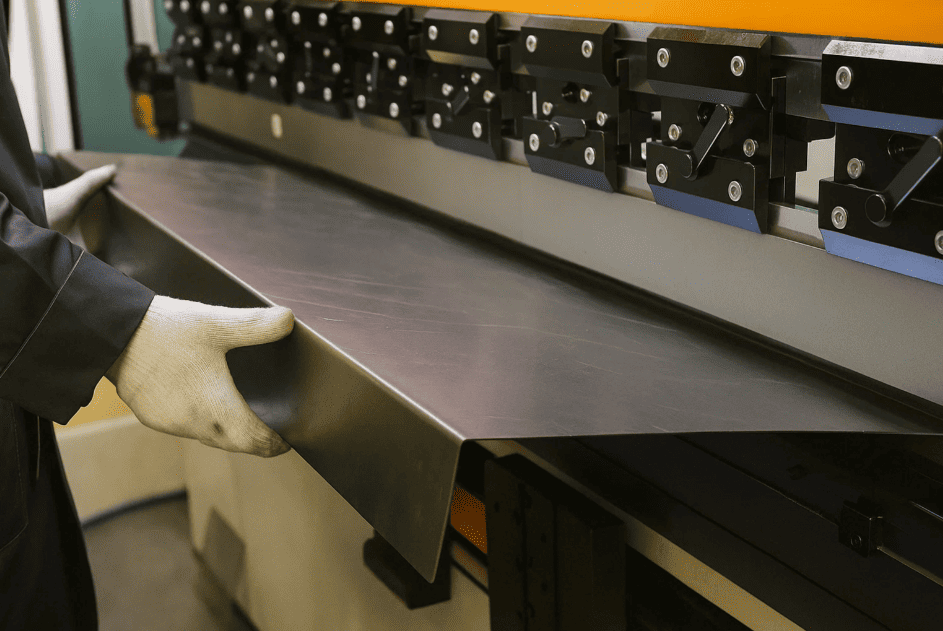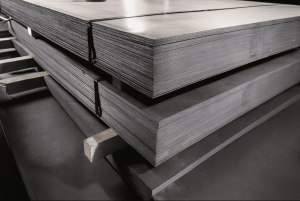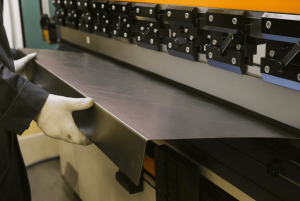

PRODUCTS
Hot products
Product details description
Sheet metal is one of the most versatile materials in modern manufacturing. It is everywhere—from the car you drive to the building you work in, the electronics you use, and the appliances in your home. Its adaptability, strength, and cost-effectiveness make it an indispensable part of countless products and structures.
For manufacturers, engineers, and procurement teams, understanding the common uses for sheet metal is critical for planning projects, selecting the right fabrication partner, and ensuring product quality. At MexMach, as a leading sheet metal service provider in Mexico, we’re here to share our industry expertise about how sheet metal is used across sectors, and why it remains essential to so many applications.
Sheet metal refers to metal that has been processed into thin, flat pieces. It can be made from a variety of metals including steel, stainless steel, aluminum, copper, brass, and more. The manufacturing process typically involves rolling the metal into sheets of uniform thickness, which can then be cut, bent, or shaped into the desired form.
Sheet metal comes in various thicknesses (known as gauge), finishes, and grades, making it highly customizable for many engineering and manufacturing needs. The gauge of sheet metal determines its strength and flexibility—thinner gauges are lighter and more flexible, while thicker gauges offer greater structural integrity.

Sheet metal is prized for several key properties that make it an ideal choice for a wide range of applications:
Strength-to-weight ratio: Sheet metal is strong yet relatively lightweight, making it perfect for industries where both durability and weight savings are crucial, such as automotive and aerospace.
Formability: It can be bent, cut, punched, welded, and shaped into complex forms without losing its structural integrity. This allows for the creation of intricate designs and precise components.
Durability: Sheet metal is resistant to wear, corrosion (with proper finishes), and environmental exposure, ensuring longevity even in harsh conditions.
Cost-effective: It is suitable for both prototyping and high-volume production, offering economies of scale that make it an affordable option for manufacturers.
Finish options: Sheet metal can be painted, powder-coated, anodized, or polished, providing both aesthetic appeal and additional protection against environmental factors.
These features make sheet metal fabrication an excellent solution for countless industries, from large-scale industrial projects to small, custom components.
Sheet metal is a foundational material in many sectors due to its adaptability and performance. Below are some of the most common industries that rely on sheet metal fabrication:
The automotive industry is one of the largest consumers of sheet metal. It is used to create:
Body panels
Chassis components
Brackets and mounting systems
Heat shields
Exhaust components
Sheet metal’s ability to be formed into precise, strong, and lightweight parts makes it indispensable in vehicle manufacturing. Advances in sheet metal technology, such as high-strength steel and aluminum alloys, have enabled automakers to produce lighter, more fuel-efficient vehicles without compromising safety or performance.
In the aerospace sector, sheet metal is critical for constructing:
Fuselage panels
Structural supports
Brackets and mounts
Interior components
High-grade aluminum and titanium sheet metals are often used for their exceptional strength-to-weight ratios, which are essential for reducing aircraft weight while maintaining structural integrity. The precision required in aerospace manufacturing also makes sheet metal an ideal choice, as it can be fabricated to meet exacting tolerances.
Sheet metal plays a vital role in the construction industry, where it is used for:
Roofing and cladding
Ductwork and ventilation systems
Doors and frames
Structural reinforcements
Its durability and weather resistance make it a popular choice for architectural elements. Additionally, sheet metal can be coated or treated to withstand extreme environmental conditions, such as heavy rain, snow, or high winds, ensuring long-term performance in building projects.
Electronics manufacturers rely on sheet metal for:
Enclosures and casings
Racks and cabinets
Mounting plates
Heat sinks
Sheet metal provides the precision and protection needed for delicate electronic components. Its ability to be formed into custom shapes allows for the creation of enclosures that fit specific devices, while also offering electromagnetic shielding and heat dissipation properties.
In the industrial equipment sector, sheet metal is used to fabricate:
Machinery housings
Conveyor systems
Guards and safety covers
Custom brackets and frames
Sheet metal parts ensure that machinery operates safely and efficiently. The material’s strength and versatility allow for the creation of custom components tailored to specific operational requirements, whether for heavy-duty manufacturing equipment or precision tools.
The HVAC industry depends heavily on sheet metal for:
Ductwork
Vents and registers
Housings and enclosures
Sheet metal is essential for creating complex ducting systems that must be air-tight, durable, and corrosion-resistant. Its ability to be shaped into precise forms ensures efficient airflow and temperature control in both residential and commercial buildings.
In the medical field, sheet metal is used to produce:
Device enclosures
Equipment carts
Brackets and frames
Sterile covers
The precision and hygiene standards required in medical manufacturing make stainless sheet metal an ideal choice. Its corrosion resistance and ease of sterilization ensure that medical devices and equipment remain safe and functional in clinical environments.

Beyond its use in specific industries, sheet metal is the foundation for thousands of everyday products. Some common examples include:
Control panels
Storage cabinets
Server racks
Appliance housings (e.g., refrigerators, ovens)
Light fixtures
Signage
Shelving systems
Protective guards
Sheet metal fabrication can produce custom parts in small batches or support mass production runs, making it suitable for both niche applications and high-volume manufacturing.
Why do so many industries choose sheet metal? Because it offers:
✅ Design flexibility: Sheet metal can be shaped into virtually any form, allowing for creative and functional designs.
✅ Consistent quality and precision: Advanced fabrication techniques ensure that parts meet exact specifications, even in complex designs.
✅ High strength and durability: Sheet metal components can withstand heavy use and harsh environments.
✅ Compatibility with many finishes: From powder coating to anodizing, sheet metal can be finished to meet both aesthetic and functional requirements.
✅ Cost-effectiveness in both low and high volumes: Sheet metal is economical for prototyping and scalable for mass production.
At MexMach, our clients appreciate that sheet metal can be tailored exactly to their design, functional, and cost requirements, making it a reliable choice for a wide range of projects.
Selecting the right metal and thickness is essential for successful fabrication. Here are key factors to consider:
Material type:
Steel: Offers high strength and is ideal for structural components.
Aluminum: Lightweight and corrosion-resistant, perfect for applications where weight is a concern.
Stainless steel: Provides excellent corrosion resistance and is often used in medical or food-grade applications.
Gauge:
Thinner gauges (higher numbers) are lighter and more flexible, suitable for decorative or non-structural parts.
Thicker gauges (lower numbers) offer greater strength and are used for load-bearing or structural components.
Finish:
Powder coating: Provides a durable, corrosion-resistant finish in a variety of colors.
Anodizing: Enhances corrosion resistance and surface hardness, commonly used for aluminum.
Plating: Adds a layer of metal (e.g., zinc or nickel) for additional protection.
Polishing: Improves aesthetics and can enhance corrosion resistance.
Environment:
Consider whether the part will be used indoors or outdoors, and if it will be exposed to chemicals, moisture, or extreme temperatures.
Our engineering team at MexMach helps customers in Mexico and internationally select the optimal material for their needs, ensuring that every project meets performance and budget expectations.
At MexMach, we provide full-service sheet metal fabrication in Mexico, from prototype to production. Our comprehensive capabilities include:
Laser cutting and CNC punching: For precise, clean cuts and complex shapes.
Bending and forming: To create custom angles and forms with high accuracy.
Welding and assembly: Ensuring strong, seamless joints and complete assemblies.
Powder coating and finishing: Offering a range of finishes to enhance durability and appearance.
Quality inspection and testing: Guaranteeing that every part meets stringent quality standards.
We support industries including automotive, industrial equipment, electronics, construction, and more. Our one-stop approach simplifies your supply chain, reduces lead times, and ensures consistent, high-quality results.
Whether you need a single prototype or a large production run, MexMach is equipped to handle your project with expertise and efficiency.
Sheet metal is essential to modern manufacturing because of its versatility, strength, and adaptability. From cars and planes to HVAC ducts and electrical enclosures, it’s the backbone of countless products and industries.
At MexMach, we’re proud to help companies bring their designs to life with precision sheet metal fabrication services in Mexico. Whether you’re building a single prototype or scaling for mass production, our team is ready to support your success.
Contact us today to discuss your next sheet metal project and discover how we can deliver quality, efficiency, and value.